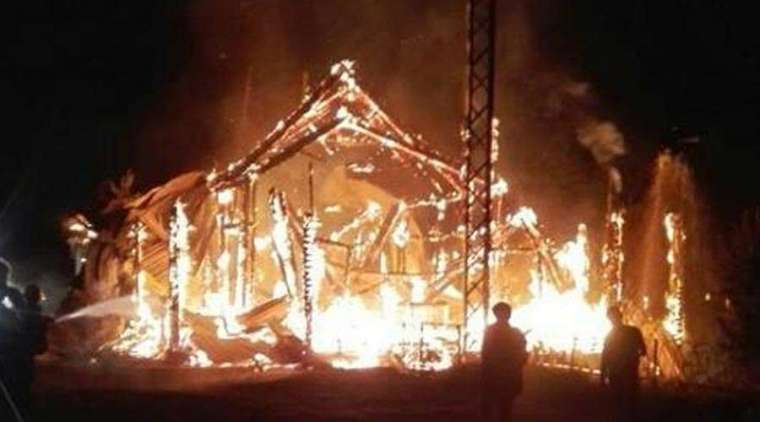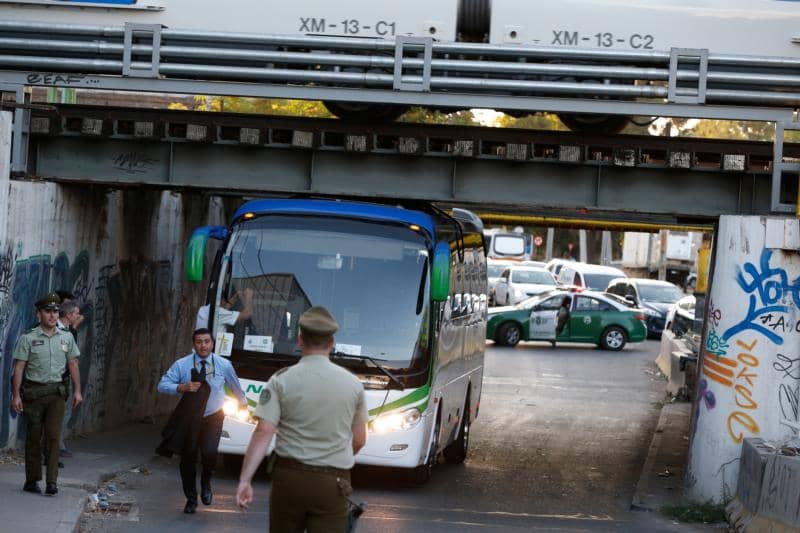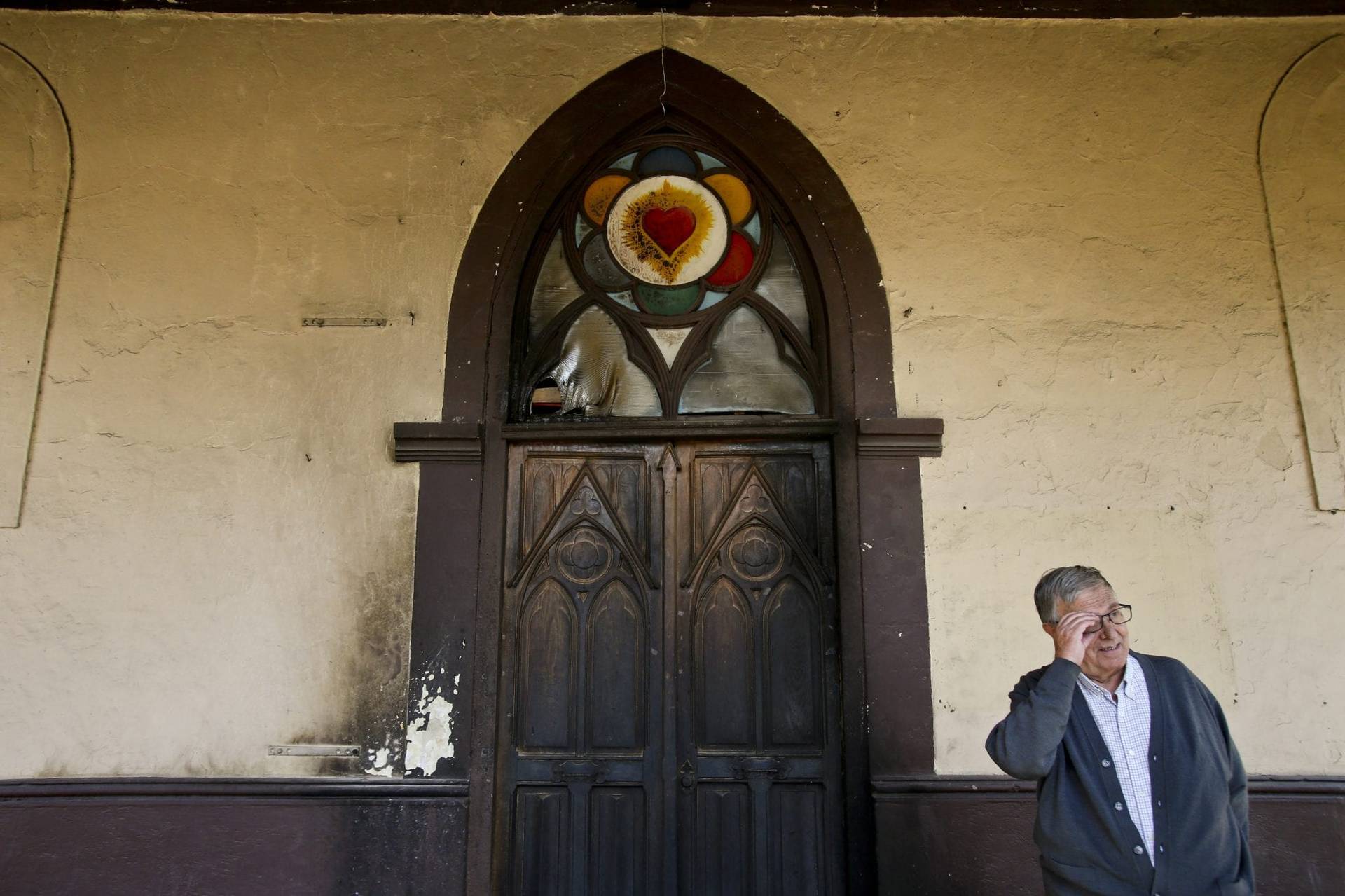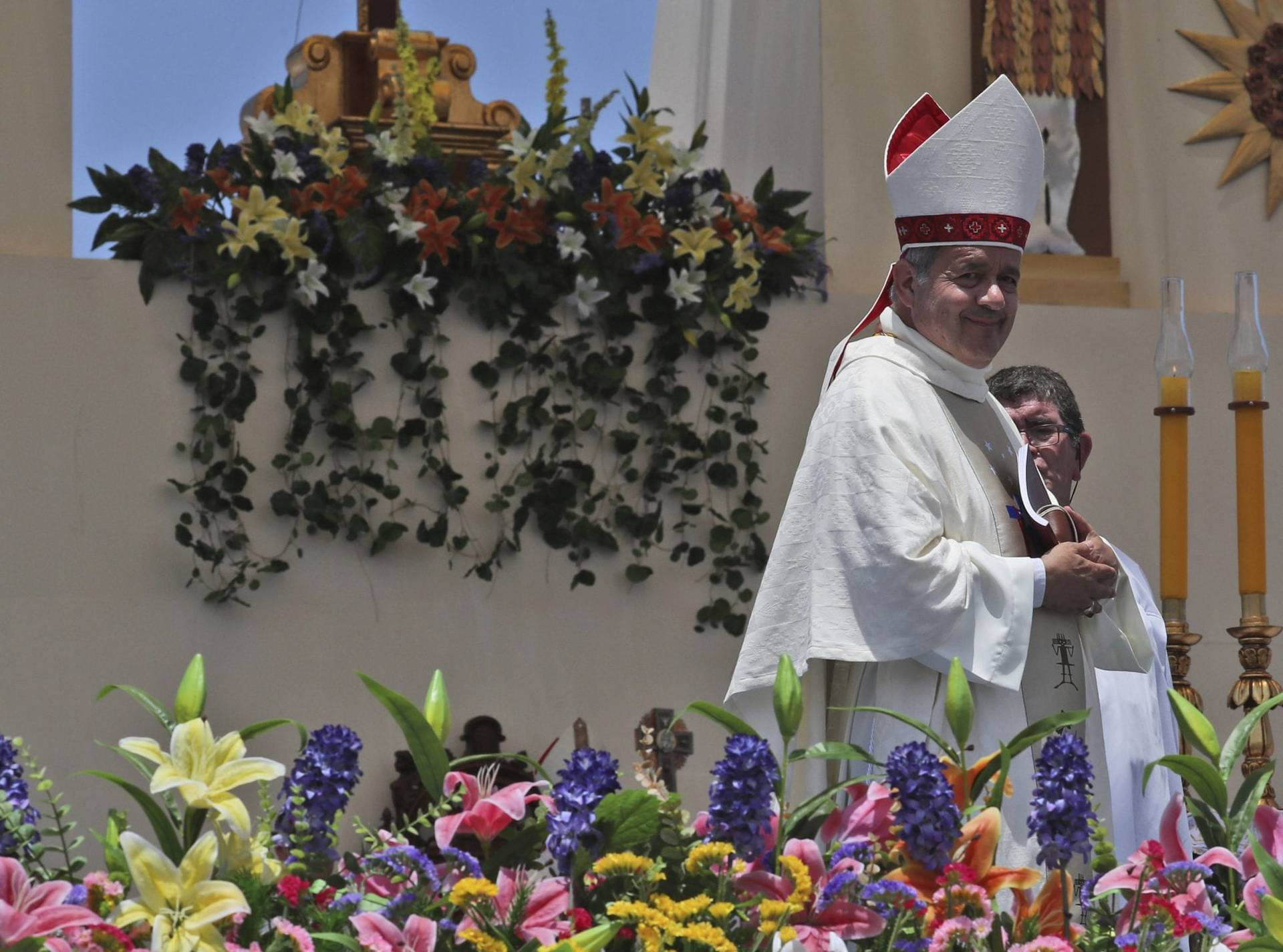ABOARD THE PAPAL PLANE — Even though Pope Francis’s Jan. 15-21 outing to Chile and Peru is his sixth trip to Latin America, it’s only the second time the Argentine pontiff has flown over his home country en route. Popes always send telegrams to the heads of state of the countries whose airspace they enter, and in keeping with that tradition, Francis dispatched a message on Monday to Argentine President Mauricio Macri.
The papal spokesman, American Greg Burke, hinted to journalists in the run-up to the trip that the message would be “interesting,” and speculation was feverish in Argentina: Would he actually say anything, beyond the usual note expressing affection and promising prayers? Perhaps most importantly, will he tell us when he’s finally going to make a visit to his home?
In the end, the telegram was a bit of a bust — no political subtext, no hint about a possible trip, basically nothing of news value. (On the other hand, Francis ended the telegram by asking his countrymen not to forget to pray for him — a deeply personal touch missing from the other messages to heads of state, and a sign that the pontiff wrote this one in his own hand.)
The question remains for many Argentinians — why hasn’t our pope come home?
For the past five years, Francis has avoided going to Argentina, choosing to go to virtually every other country: Beyond the Guianas, the only nations in South America the first pope from the Global South hasn’t yet visited are Uruguay, Venezuela and, of course, the land of Evita, Maradona and Che.
Close collaborators on both sides of the Atlantic have said Francis has avoided going back to Argentina because he doesn’t want to be used politically, nor interfere in the country’s election cycles. In this sense, 2018 presented a perfect window, since there are no elections scheduled.
However, after Cardinal Mario Poli, Francis’s successor in Buenos Aires, said in Sept. 2017 that the pope would go to his country “very soon,” Burke had to deny it, saying that no trips to Argentina are being planned at the moment.
During his trip to Colombia late last year, Francis said the same to Crux, answering “I don’t know. I still don’t know …” when asked about going back home.
Father Jorge Oesterheld, spokesman for the Argentine bishop’s conference, recently spoke with local radio about the papal visit to Chile and said that it was “painful that he’s flying over us and landing somewhere else.”
“It’s somewhat strange,” that the pope hasn’t yet visited Argentina, Oesterheld said. “This is hard for us Argentines to digest. But we need to trust that as soon as he can, he will come to Argentina. We’re going to have his presence, his word.”
Whatever the reason, Argentines are not holding back: tens of thousands are expected to be in Santiago, Chile’s capital, during the pope’s visit.
Beyond travel arrangements, the pope as a figure is not being ignored in Argentina, even if his words are often spun to the point they become unrecognizable, both by friends and foes.
Beyond his public agenda in Rome, Francis receives many visitors from home. Being able to have a “social life” is among the reasons he gave for choosing to live in the Santa Marta residence, a hotel within Vatican grounds. Among those visitors, many are from Argentina, and they include a wide range of people.
Some of those who fly to Rome are very open about it, sharing images of their encounter with the pontiff, and eagerly holding press conferences to transmit the content of the conversation they had with the leader of the world’s 1.3 billion Catholics, only 39 million of whom are from the pope’s country.
Drawing only from the conversations these people claim to have had with Francis, however, one would be forced to draw the conclusion he’s only ever thinking about Argentina, its tax reforms and general strikes.
Things had gotten so bad that last year an Argentine edition of the Vatican’s newspaper, L’Osservatore Romano, was launched in order to provide people back home with direct access to the pope’s words.
In an attempt to close the gap between what Francis says in public and what he allegedly thinks, according to his would-be Argentine interpreters, the local bishops released a statement last week titled “Francis, the pope of everyone.”
“We Argentines shave an enormous privilege,” they said. “Almost five years ago one of our brothers was elected pope, meaning, the top authority of the Church in the world,” defining him as an “unquestionable global reference” for most Christians and people of good will.
The statement rejects so-called “spokesmen” of the pope, and those who try to use him either pretending to represent his thought or attribute imaginary positions to him.
“No one has spoken, nor can speak in the pope’s name,” said the statement, signed by the heads of the bishops’ conference. “We have to find his contribution to the reality of our country in his abundant magisterium and in his attitudes as a pastor, not in tendentious and partial interpretations that only enlarged the division among Argentines.”
Perhaps showcasing the frustration the pope’s actual communication machine has with the way he’s spun back home, the Vatican’s official news site, Vatican News, picked up the statement, as did Paloma Garcia Ovejero, the Vatican’s deputy spokeswoman, who tweeted it out.
Beyond the conspiracy theories that can be spun regarding why Francis hasn’t gone home yet, he gave a reason back in 2016, when he sent a video to his countrymen saying that he wouldn’t go back in 2017. The tape was meant to quash the rumors that a trip was in the works.
“You don’t know how much I would like to see you again,” he said in the video. “And I won’t be able to do it next year either because there are commitments with Asia and Africa … and the world is bigger than Argentina.”
In effect, it was almost a papal appropriation of “Evita” — “Don’t cry for me, Argentina!”
In the end, the trip to Africa never happened and the pope instead went to Colombia, soon after an agreement between the government and the country’s largest guerrilla virtually put an end to a decades long civil war.
The fact that he took the time to send a video, is in itself, telling: South Sudan and Congo, the African countries he was supposed to visit, never got a video from the pope saying he wouldn’t go. They had to settle for a statement from the Vatican’s press office.
As for the “world is bigger than Argentina” statement, looking at the stamps Francis has collected in the past five years is a useful way of putting things into context. Beyond his visits to Brazil and the United States, both of which were scheduled by Benedict XVI, virtually every other trip he’s made involved a journey to the peripheries of the world.
He went to Central African Republic to preach about peace amidst a bloody civil war. He went to South Korea to preach about deescalating tensions in the peninsula. He included Cuba in his U.S. tour after being credited by both countries with helping to normalize their relationship. He went to Myanmar and Bangladesh to shine a light over the ethnic cleansing against the Rohingya.
Francis visited the Greek island of Lesbos to highlight the migrant crisis, a recurrent focal point on other trips, including his visit to Mexico. This is an issue that will also come up during his upcoming trip to Chile and Peru, together with the plights of the indigenous peoples and the Church’s inadequate response to the sex abuse crisis.
If or when Francis will go back to Argentina remains a mystery many locals have thrown tantrums over. Perhaps more mature, but equally passionate, auxiliary bishop of Buenos Aires Gustavo Carrara put it this way: “I have the hope that he’ll come soon, but I don’t know when.”
A papal visit would be good for the country, he told Crux in December. “But I would also say that it’s more important that the Church, and the people in general, acknowledged the pope as a great blessing.”
“I believe we’re not fully measuring the importance of his message, which echoes deeply the Gospel of Jesus,” Carrara said. “That’s what worries me, regardless of whether he comes or not.”











